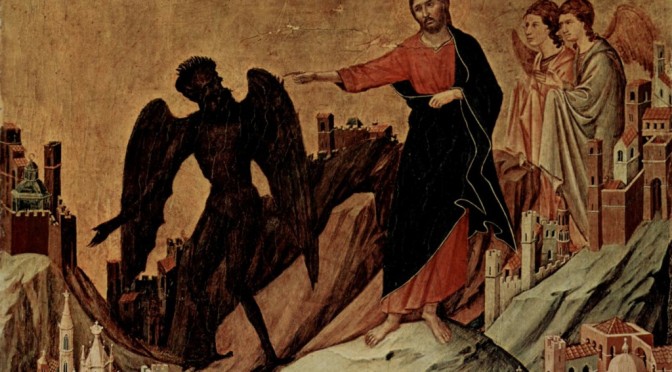Caitlin Trussell with Augustana Lutheran Church on August 21, 2022
[sermon begins after the Bible reading]
Luke 13:10-17 Now [Jesus] was teaching in one of the synagogues on the sabbath. 11And just then there appeared a woman with a spirit that had crippled her for eighteen years. She was bent over and was quite unable to stand up straight. 12When Jesus saw her, he called her over and said, “Woman, you are set free from your ailment.” 13When he laid his hands on her, immediately she stood up straight and began praising God. 14But the leader of the synagogue, indignant because Jesus had cured on the sabbath, kept saying to the crowd, “There are six days on which work ought to be done; come on those days and be cured, and not on the sabbath day.” 15But the Lord answered him and said, “You hypocrites! Does not each of you on the sabbath untie his ox or his donkey from the manger, and lead it away to give it water? 16And ought not this woman, a daughter of Abraham whom Satan bound for eighteen long years, be set free from this bondage on the sabbath day?” 17When he said this, all his opponents were put to shame; and the entire crowd was rejoicing at all the wonderful things that he was doing.
[sermon begins]
“Remember the sabbath and keep it holy.”[1] Let’s geek out on that for a minute. It’s the third commandment of the big ten. In the Bible books of Exodus and Deuteronomy, this commandment is given with extra emphasis on who gets to rest. God commands rest for all the people – free people, enslaved people, and alien residents in the land. God commands rest for animals too – ox, donkey, and all livestock. In Exodus, the command is given to honor God’s rest on the seventh day after creating creation. In Deuteronomy, the command is given because the Hebrew people were once slaves without rest in Egypt, so rest is not to be taken for granted. In both books, the sabbath command is “to the Lord your God.” Resting to the Lord. Resting in the Lord. A holy day of rest. Breathe that in for minute. Holy rest for everyone and everything. Holiness for everyone and everything.
Holy rest. Holiness. Sabbath. A thing of beauty but a different kind of beauty rest. When we put it this way, it’s easier to have compassion for the synagogue leader when Jesus heals the woman from a crippling spirit on the Sabbath. Holy rest is hard to come by. We all know it. We know it bone deep – deep in the weariness that cripples our own spirits. But unless we have a daily battle that’s physical or cultural, it’s tough to appreciate the woman’s moment in the story. And Jesus had a way of expanding commandments at inopportune times, disrupting the moment while freeing the person in pain. Perhaps we could say he blew apart holiness only to reform it into something even holier. Jesus is always one step ahead, isn’t he? At least one step ahead, disrupting what we think should be happening with what God thinks should be happening. Jesus taking action is sometimes called good news or gospel. But in Lutheran Christian land, we often talk about law and gospel because law is often on the flipside of the gospel. We’re both freed by Jesus’ actions while at the same time convicted by Jesus’ actions.
Much like the synagogue leader whose reaction to Jesus’ action was angst and indignation, our reactions to law can be similar. Sabbath rest is a great example of law and gospel. Here we are this morning, Sabbath resting to God, listening to God’s word, reassured by God’s presence and promise in our lives. That’s gospel. At the same time, there are people who can’t be here, people who can’t take a Sabbath rest because they’re working. So, is Sabbath rest optional? Is Sabbath rest just for some of us? That can’t be right. Deuteronomy includes the alien in your lands, not just people who follow God’s command. Do we assume that everyone is able to rest at other times? Have we constructed a society in which rest isn’t for everyone? Is it possible that there is no such thing as true Sabbath rest until even the most vulnerable among us may rest?
The discomfort grows as the questions smolder. Much like when Jesus asks questions in our reading and his opponents were put to shame. Shame is an unhelpful emotion. Regret is a more useful cousin of shame because we learn from regret what it is we don’t want to do again. Regret edges us towards being convicted by the law which provokes our discomfort. It helps us by shaking us free to see our neighbor’s situation differently and therefore our own situation differently. Rev. Dr. King talked about something similar when he explained changing society through nonviolent resistance. He said:
This approach doesn’t make the white man feel comfortable. I think it does the other thing. It disturbs the conscience, and it disturbs the sense of contentment that he’s had.[2]
In our Bible story this morning, Jesus healed the woman from a crippling spirit. For her, freedom from 18 years of being enslaved to that spirit freed her for a Sabbath rest like none in her recent past. There was nothing more holy than her freedom in merciful healing. As she stood straight, she was living and breathing pure gospel. For that moment in time, she embodied the good news of Jesus. But her vertical body made another body uncomfortable. Maybe it’s like Rev. Dr. King said. Jesus’ approach didn’t make the synagogue leader feel comfortable. It did the other thing. It disturbed his conscience, and it disturbed the sense of contentment that he had. I would say that it disturbed his own ideas about the holy with a greater holiness.
When Jesus healed the woman, he changed at least two people’s perspectives. The woman saw the world around her at everyone else’s eye level for a change. Her perspective literally shifted from looking at the floor to looking people in the eye. The synagogue leader saw the woman’s healing as a disruption to Sabbath holiness rather than her healing as holiness. His perspective shifted when Jesus started asking questions and realized he wasn’t right. All of this to say that I wonder how greater holiness raises questions, disturbs our conscience, and shifts our perspective. I wonder where the law convicts us, and the gospel heals us simultaneously through Jesus’ actions.
In this summer’s Eucharistic Prayer during communion, we praise God’s merciful might in taking on flesh as Jesus our healer, while we remember his cross and praise his resurrection. In our weekly communion celebration, the praise for God’s mercy links first to the cross. On the cross is where God in Jesus chooses vulnerability and refuses to raise a hand in violence against the world God loves. Jesus absorbed human violence into death, burying it in a tomb, and revealing a love so powerful that even death could not end it.
A love that now lives in us as the body of Christ, the church. Sometimes the church is called the Body of Christ because Christ’s death and resurrection promise lives in us through our baptisms which empowers us by the Holy Spirit to love God, and to love our neighbors as ourselves. But I wonder how we as the church more quickly react like the synagogue leader when our perspective of holiness is challenged rather than like the body of Christ from whom Christ’s love pours out to renew an exhausted world, deeply in need of rest and the reminder that God loves people, not power.
Jesus made himself vulnerable to power when he healed the woman in pain despite it being the Sabbath rest day. Embodying God’s love and mercy was high risk for him. God’s mercy is so radical that the world as it was, and as it is now, could not fathom a holier way. A holier way through which there is no time like the present to receive God’s love and mercy. And there’s no time like the present to give away God’s love and mercy. God’s merciful might is revealed through Jesus, our healer, who pours out his love for us here in this place of Sabbath rest, promising rest through disruption, pardon through conviction, and life through death. For this and for all that God is doing, we can say thanks be to God. And amen.
____________________________________________
[1] Deuteronomy 5:12-15 and Exodus 20:8-10 – Remember the sabbath and keep it holy…
[2] See video here: https://twitter.com/BerniceKing/status/1558245621064146944

![No Time Like the Present to Catch Up on Beauty Rest [OR God Loves People, Not Power: Check Out the Commandment to Rest] Luke 13:10-17](http://caitlintrussell.org/wp-content/uploads/2022/08/Sabbath-child-and-oxen-672x372.jpg)
![The Cross Revealed – John 18:1-19:42 [OR Some Good News on Good Friday – Yup, That John Krasinski]](http://caitlintrussell.org/wp-content/uploads/2020/04/Laura-James.-Jesus-Mother-Beloved-Disciple.-Cross-Crucifixion-672x372.jpg)
![The Logic of Leveling vs. Scarcity and Scapegoating [OR Jesus, Pops, and Pithy Sayings] Luke 6:17-26, Jeremiah 17:5-10](http://caitlintrussell.org/wp-content/uploads/2019/02/JOSE-TRUJILLO-OIL-PAINTING-JESUS-CHRIST-PREACHING.sermon-Caitlin-Trussell-672x372.jpg)


![Thievery, Shadows and Light [OR Why Matthew’s Year is Good News] Matthew 24:36-44, Isaiah 2:1-5, Psalm 122, Romans 13:8-14](http://caitlintrussell.org/wp-content/uploads/2016/11/NASA.JPL_.light-and-shadow-exhibit.sermon-Caitlin-Trussell-672x372.jpg)



